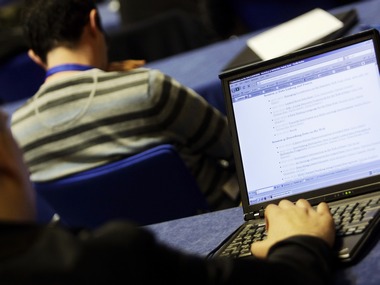In a New York Times op-ed, father of the internet, Vint Cerf, argued that access to the internet is not and should not be made a human right. He’s right. Internet access is more akin to an essential utility, such as water, and should be treated as such. Says Cerf:
In June, citing the uprisings in the Middle East and North Africa, a report by the United Nations’ special rapporteur went so far as to declare that the Internet had “become an indispensable tool for realizing a range of human rights.” Over the past few years, courts and parliaments in countries like France and Estonia have pronounced Internet access a human right. But that argument, however well meaning, misses a larger point: technology is an enabler of rights, not a right itself. There is a high bar for something to be considered a human right. Loosely put, it must be among the things we as humans need in order to lead healthy, meaningful lives, like freedom from torture or freedom of conscience.
[caption id=“attachment_175245” align=“alignleft” width=“380” caption=“Cerf points out that making the internet a human right is akin to making a horse a human right in 19o0s. Reuters”]  [/caption] Cerf points out that making the internet a human right is akin to making a horse a human right in the 19th Century because it was the primary form of travel. However, focusing on the horse rather than the freedom of movement exalts one particular technology, rather than digging to the core of what basic human needs require protection. Even casting internet access as a civil right is a bit of a stretch, but again, doesn’t quite fit. Civil rights protect people from unwarranted discrimination or repression from government or private organisations. That’s not quite what we need to protect the internet. Rather, I would argue that the internet should be treated the same way that water is treated in many countries: as an essential utility that cannot be summarily cut off, even if bills go unpaid. In the UK, it is illegal for water companies to cut the water supply to any customer, as water is seen as essential for public health. Without water you cannot cook, clean yourself, or flush away your excrement. The water companies, of course, do not like it when their customers do not pay, but the government has decided that public health issues come first. Is the internet analogous to water? Thinking of what the internet allows people to access, I think it is. We legislate education, saying that all children should receive a full schooling and the internet is increasingly a part of that. Children without access to teaching resources online are disadvantaged compared to their peers with access. Even university students and adults are increasingly using the internet to bolster their learning, with many universities putting lectures and coursework online, whether for enrolled students only or, like MIT or the Open University, free for everyone. And there are more and more non-academic learning venues that provide an education to anyone . Considering the role of education in health, especially women’s reproductive health, we cannot simply dismiss access to the internet as something only the rich should have. If we feel education is essential, we have to accept that the internet is now a significant part of that. The internet is also like water in that it doesn’t respect national borders. We give water what are called ‘riparian’ rights, which detail how water is allocated amongst those whose land it flows through. For example, riparian water rights ensure that any landowner can make reasonable use of the water that flows through their land. But it is clear that we do need to start thinking about ways to protect the internet as a resource. Governments around the world are working hard as they can to undermine it. They see it as a place of evil that people must be protected from, a wild west that must be tamed, and a threat to their own hegemony. Of course, the internet can be all of these things, just like water can be the cause of disputes in areas where it is in short supply. Recasting the internet not as a human right or a civil right but as a resource that is essential to our development, our health and our welfare, could help us in the battle to protect it from the bad actors trying to shut it down. Cerf says that it is the “technology creators themselves” that must work to support human and civil rights:
In this context, engineers have not only a tremendous obligation to empower users, but also an obligation to ensure the safety of users online. That means, for example, protecting users from specific harms like viruses and worms that silently invade their computers. Technologists should work toward this end. It is engineers — and our professional associations and standards-setting bodies like the Institute of Electrical and Electronics Engineers — that create and maintain these new capabilities. As we seek to advance the state of the art in technology and its use in society, we must be conscious of our civil responsibilities in addition to our engineering expertise.
I do not think that is enough. For every engineer working to protect the internet, there are others working to create malware. For every campaigner on digital rights there are politicians eager to see the internet strangled into insignificance. For every campaigner looking to ensure access to the internet and reasonable privacy safeguards, there is a company that is profiting from helping governments to monitor and track their citizens and restrict their access to information. For the internet to survive the next ten years intact, we must work as hard to ensure access to it as we do to provide access to water. Without water, we die. Without access to the internet, our access to knowledge dies. We need both to survive and thrive.


)

)
)
)
)
)
)
)
)



